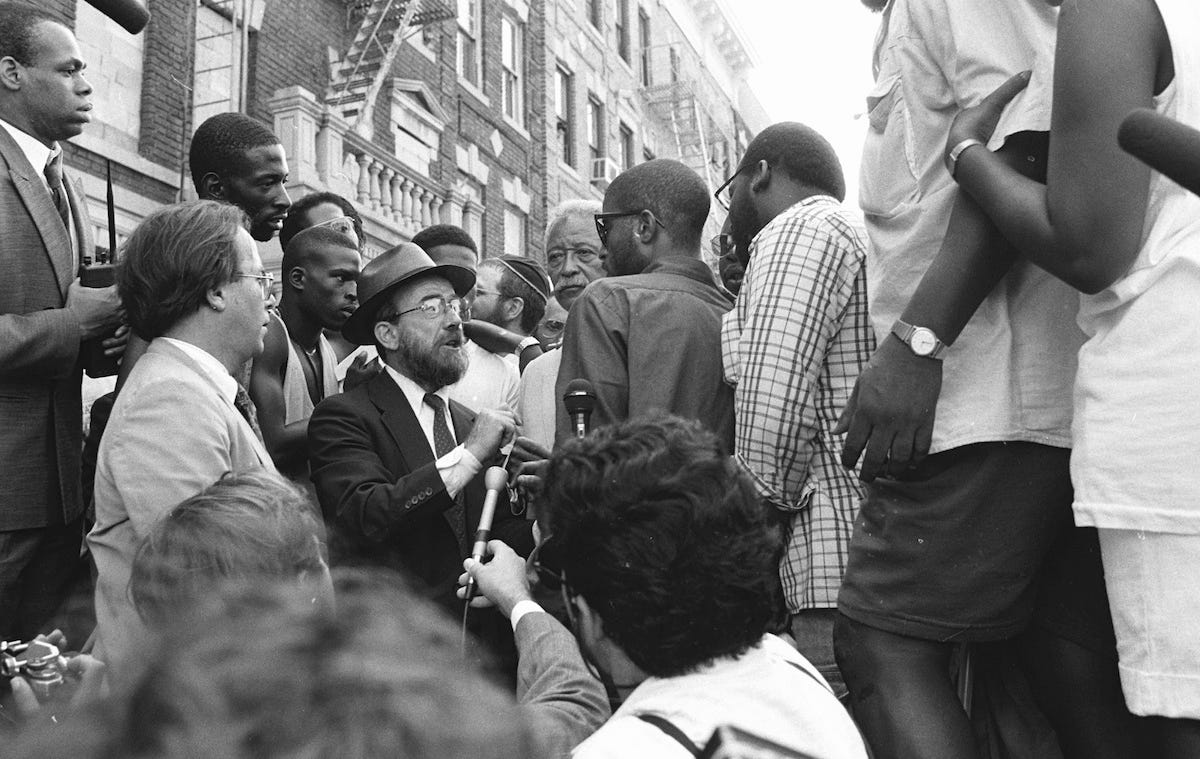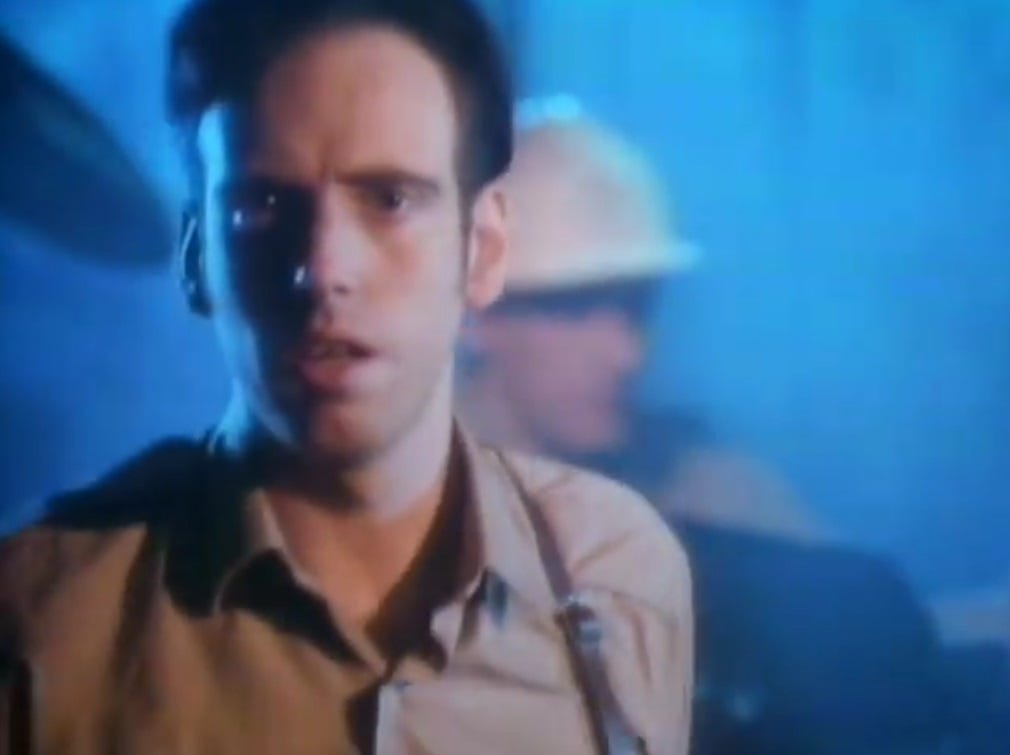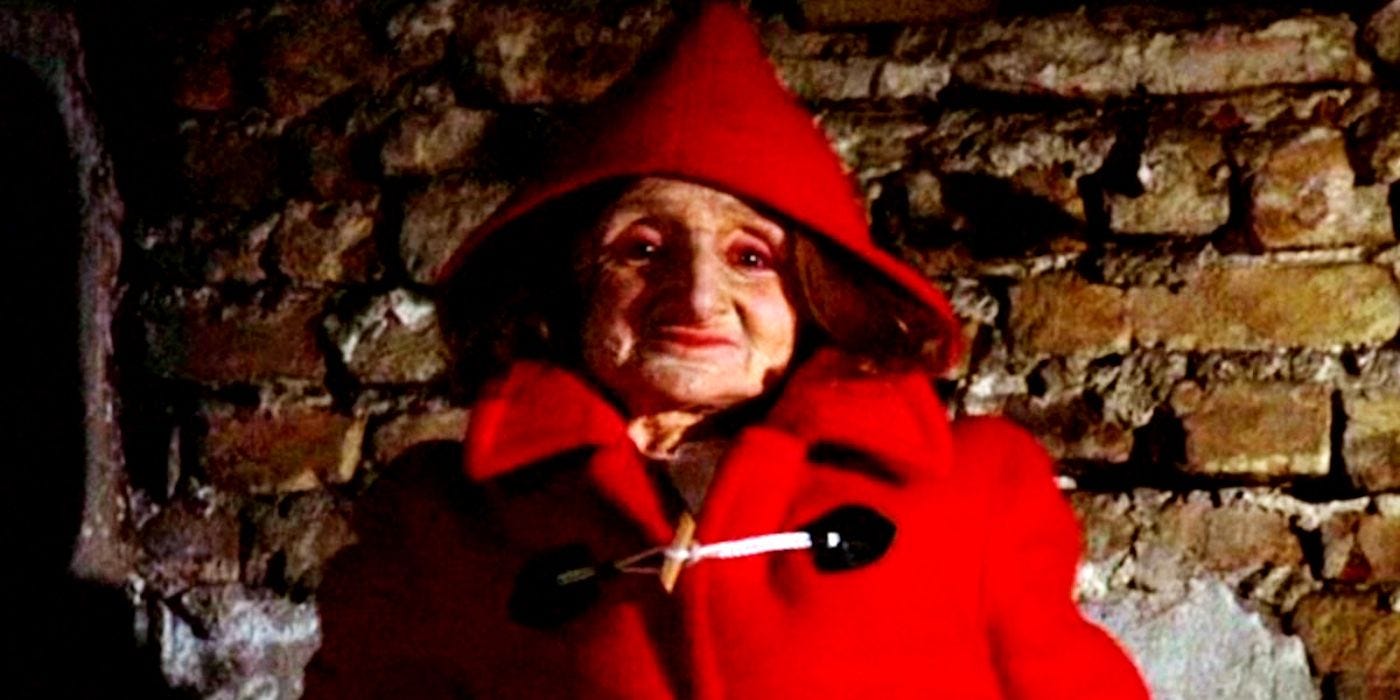Hello! Welcome back, or welcome for the first time, to “Keeping Up”, a newsletter by myself, Ashley Clark. I’ve generally kept my work life separate from this publication, but if you’ve a mild hankering to know more about what I do professionally, the Independent Cinema Office recently uploaded to its YouTube channel a wide-ranging and enjoyable (for me, at least) conversation I had earlier this month with my friend and industry colleague Charlotte Cook about my career to date.
I always like to start with a recommendation, and this week, I are been mostly riveted by two episodic podcasts that offer compelling and nuanced perspectives on complex, often enraging slices of social history on either side of the Atlantic. In “Love Thy Neighbor”, journalist Collier Meyerson sensitively and thoughtfully explores the build up to, explosion, and aftermath of what became known as Brooklyn’s “Crown Heights Riot” of 1991. And in “The Trojan Horse Affair”, the new podcast from Serial Productions and The New York Times, journalists Brian Reed (white American) and Hamza Syed (British-Pakistani Muslim) form a decidedly odd yet formidable couple in search of the truth behind a bizarre, Islamophobic scandal that unfolded in Britain in 2014.
One of the great things about sample-heavy music—and this was especially true in the pre-internet, pre-Who Sampled? era—is unexpectedly happening upon the original source of a sample, connecting the dots in your head, and getting a dopamine rush from the uncanny fusion. This happened to me not so long ago, when I heard Wings’ 1979 analog soul thumper “Arrow Through Me” for the first time a few years back (I was late to Wings because the British music press had raised me to believe they were shit; they’re not.) After some brow-furrowing, I figured out that Erykah Badu had productively pilfered its beat and woozy harmonies for the base of her 2010 track “Gone Baby, Don’t Be Long,” which I’d loved for years.
An even better example occurred when I watched Melvin Van Peebles’ riotous race-bending comedy Watermelon Man (1970) for the first time, and instantly recognized a line that the late, great MF DOOM had sampled on his 2004 track “Deep Fried Frenz” (from “MM..Food”, probably the funniest album ever made.) The line, as spoken by actor Godfrey Cambridge, is: “Villainous? Don't be silly. I know who my friends are. And the next nice neighborhood I move into, you guys'll get first crack at me.” DOOM, of course, excises the words “first” and “at me”, leaving the line to read “You guys’ll get … crack,” followed by an all-time shit-eating cackle from Cambridge. I’m laughing just typing this out.
My favorite instance of this phenomenon, however, took longer to unravel. I’d always enjoyed the 1985 song “E=MC²” by Big Audio Dynamite, the group formed the previous year by former The Clash man Mick Jones alongside DJ/filmmaker/musician Don Letts and a few other studio bods. “E=MC²” got a lot of radio play in the UK when I was growing up, and it has everything you want in a pop song: a pleasant, hook-filled melody, a catchy chant of a chorus, winningly goofy synth work, and a galloping, relentless beat. I never had any idea what Jones was banging on about in the lyrics, and I didn’t care. Neither did I know where the plentiful samples—seemingly from a British film or films—were taken from. And I was happy to stay in the dark.
But then one day, those uncanny fusions started to happen when, for the first time, I watched Nicolas Roeg and Donald Cammell’s astounding crime drama Performance (1970), and started to retroactively match its arch, salty dialogue to those samples in “E=MC²”: “You know, I don't think I'm going to let you stay in the film business.” “I like a bit of a cavort. I don't send ‘em solicitor's letters. I apply a bit of.... pressure.” “Putting a little stick about. Putting the frighteners on flash, little twerps.”
A bit of further digging revealed that “E=MC²” doesn’t just sample Performance; the entire song is a breathless and quite moving tribute to the British filmmaker Roeg (1928-2018), and one of the rare—only?—chart hits devoted to an arthouse filmmaker’s oeuvre. The more familiar I became with Roeg’s work—Walkabout, Don’t Look Now, The Man Who Fell To Earth, (the genuinely unpleasant Art Garfunkel sex drama) Bad Timing, Insignificance—the more the song came to mean to me.
Lyrically-speaking, “E=MC²” vacillates between fanboyish first-person declarations of admiration for Roeg (“Somebody I never met but in a way I know / Didn’t think that you could get so much from a picture show”); at times hilariously economical descriptions of Roeg’s films (“Met a dwarf that was no good,” Jones sneers with brusque understatement about Don’t Look Now’s pint-sized killer); poetic evocations of Roeg’s maverick style (“Time slide, place to hide, nudge reality / Foresight, minds wide, magic imagery”); and incisive perspective on his toxicity to funders (“It's assault course celluloid / The money makers would avoid.”) Roeg’s epic film Eureka, made in 1981 but buried until 1983, had been a box-office bomb. (Having seen Eureka myself, I can’t say I’m too surprised. It’s truly disturbing and unhinged stuff, and features one of the most upsetting, graphic and protracted killings I’ve ever seen on film. The best thing I’ve read on Eureka is by Irish filmmaker and writer Paul Duane, who sharply evaluates its merits while not shying away from addressing its ugly strain of racism.)
Now, it should be noted that the song’s Letts-directed music video, which seems to anticipate the desolate, no-budget sci-fi aesthetic of Red Dwarf, and features an inexplicably aggressive Mick Jones snarling at the camera, includes lots of clips from Roeg’s films, making the song’s theme absolutely explicit. I guess I just never saw it until recently! But I love the idea of a song, or any piece of art, existing as a living, ever-evolving document, that can grow, bend, change in meaning as your own journey as a consumer of art proceeds. With that, I think I’m going to stick “E=MC²” on again, and maybe, just maybe, steel myself to rewatch Don’t Look Now and get reacquainted with a dwarf that is no good.
Thank you for reading. Please consider subscribing to this newsletter if you’ve yet to do so, or, if you have, spreading the word. I appreciate it!







I was a Teaching Artist in Crown Heights and the students in my filmmaking workshop did a great documentary on the relationship betwen Blacks and Jews in Crown Heights. We did it 2011 the 20th anniversary of the what is called, The Crown Heights Riots. It won a few prizes and got some local recognition when it came out. It was an important moment for those students, many, out of mistrust and fear, had never spoken with the Jewish residents in the neighborhood and same thing for the Jews we interviewed who had little or no interaction with their Black neighbors.